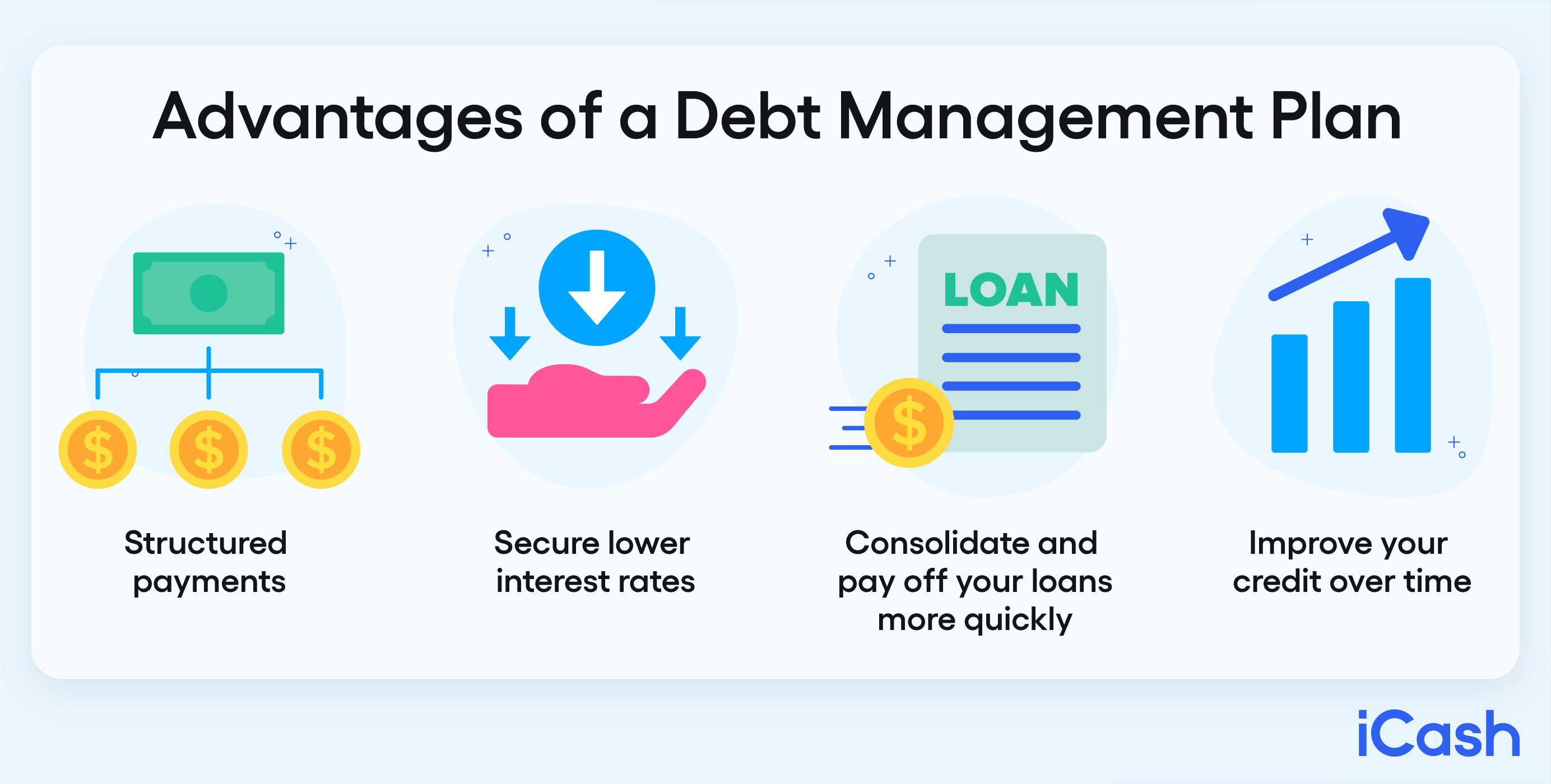Why You Need To Take Into Consideration Debt Management Plan Services for Handling Your Funds
Why You Need To Take Into Consideration Debt Management Plan Services for Handling Your Funds
Blog Article
Specialist Tips and Strategies for Implementing a Successful Debt Administration Plan
When it comes to navigating the intricacies of financial debt monitoring, having a well-balanced plan is essential for accomplishing monetary stability. Applying expert pointers and strategies can make a considerable distinction in your trip towards financial obligation alleviation. From analyzing your present monetary standing to discussing with creditors, each action plays a critical duty in shaping an effective financial debt management plan. By recognizing the intricacies of financial obligation management and embracing tested techniques, people can lead the way for an extra protected monetary future.
Evaluating Your Current Financial Scenario
Before starting a debt monitoring strategy, it is essential to extensively examine your existing economic standing. Comprehending your financial scenario is the foundational step in the direction of effectively handling and reducing your financial debt. Begin by putting together a breakdown of all your financial debts, consisting of outstanding balances, passion prices, and minimal month-to-month repayments. This will certainly provide a clear introduction of the extent of your financial responsibilities. Furthermore, examine your revenue resources and regular monthly costs to establish your disposable earnings readily available for financial debt payment.

Establishing a Realistic Budget
Understanding your existing monetary situation prepares for creating a sensible budget plan that lines up with your financial obligation management objectives and monetary abilities. When creating a budget, it's critical to properly track your income, costs, and financial obligation commitments. Begin by providing all sources of revenue, consisting of salaries, benefits, and any kind of extra earnings. Next off, outline your dealt with expenses such as lease or mortgage payments, energies, insurance coverage, and funding repayments. Variable costs like groceries, amusement, and transportation ought to likewise be accounted for. By categorizing your expenditures, you can identify areas where you may need to reduce to maximize funds for financial debt payment.

Focusing On and Dealing With Debts
To properly regain control of your finances and work in the direction of financial stability, prioritizing and tackling your debts is an important action in your debt monitoring strategy. Start by detailing all your financial obligations, consisting of credit score cards, lendings, and any type of various other outstanding balances. Recognize high-interest financial obligations that are costing you the most cash and focus on paying them off first. By concentrating on discover this info here these high-interest debts, you can conserve cash over time and minimize the overall quantity you owe.
After recognizing your high-interest financial obligations, take into consideration making use of approaches like the financial debt snowball or financial debt avalanche approach to pay them off methodically. The financial debt snowball technique includes repaying the tiniest financial debts initially, while the financial obligation avalanche approach prioritizes financial obligations with the greatest rate of interest. Pick the approach that straightens ideal with your monetary objectives and encourages you to maintain making progress.
Furthermore, think about bargaining with lenders for reduced interest rates or setting up a layaway plan if you're having a hard time to meet your present obligations. Seeking aid from a debt therapist or monetary advisor can likewise offer useful understandings and guidance on how to properly tackle your financial debts - debt management plan services. By prioritizing and resolving your debts purposefully, you can pave the way in the direction of a debt-free future and boosted financial health
Working Out With Lenders
When engaging in debt administration, working out with financial institutions is an important action towards locating mutually valuable remedies for financial debt settlement. Before launching arrangements, it is vital to have a clear understanding of your financial scenario, including your earnings, costs, and the overall amount of financial debt owed.

Structure Healthy And Balanced Monetary Practices
Incorporating constant budgeting methods is necessary for cultivating healthy financial practices. Budgeting permits people to track their earnings and expenses, allowing them to make educated choices about their financial concerns. Setting specific financial objectives, such as saving for emergencies or retirement, can provide a clear roadmap for handling money properly.
Another key aspect of structure healthy financial practices is living within one's ways. This involves spending less than what is earned and staying clear of unnecessary financial debt. Identifying and embracing a penny-wise attitude between wants and needs can help individuals make even more sensible investing choices.
Frequently keeping track of and assessing financial statements credit records are crucial habits that promote financial recognition and responsibility. By staying educated concerning their economic standing, individuals can determine possible concerns at an early stage and take aggressive steps to address them.
Additionally, developing a financial savings practice, even with percentages, can contribute significantly to long-term economic security. Saving regularly not only develops a monetary cushion for unforeseen costs but likewise cultivates a sense of technique and duty towards finance. By consistently exercising these routines, individuals can lay a solid foundation for a steady financial future.
Conclusion
Finally, implementing a successful financial debt administration plan needs a thorough evaluation of one's monetary scenario, the development of a practical spending plan, prioritizing and dealing with financial obligations, working out with lenders, and structure healthy and balanced monetary behaviors (debt management plan services). By complying with these specialist tips and strategies, people can take control of their funds and work towards attaining economic security and freedom from financial debt
Comprehending your existing financial situation lays the foundation for establishing a practical budget plan that index straightens with your financial debt monitoring objectives and economic abilities.To effectively restore control of your financial resources and work in the direction of financial security, prioritizing and tackling your financial debts is an essential step in your debt monitoring strategy.After recognizing your high-interest debts, think about making use of approaches like the financial obligation snowball or debt avalanche approach to pay them off systematically. The financial debt snowball technique includes paying off the smallest financial debts initially, while the financial obligation avalanche approach prioritizes debts with the highest rate of interest rates.When involving in financial debt management, negotiating with lenders is an essential step in the direction of discovering equally helpful solutions for financial debt payment.
Report this page